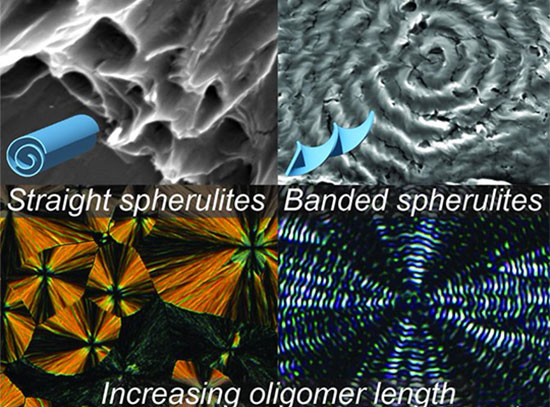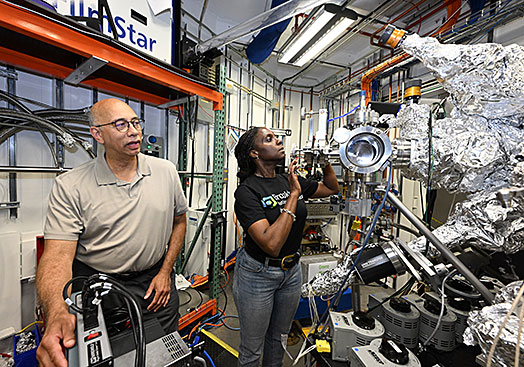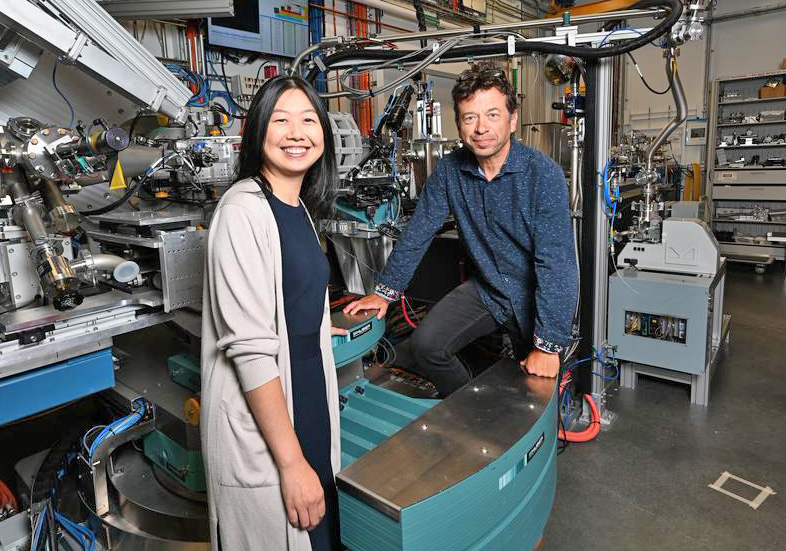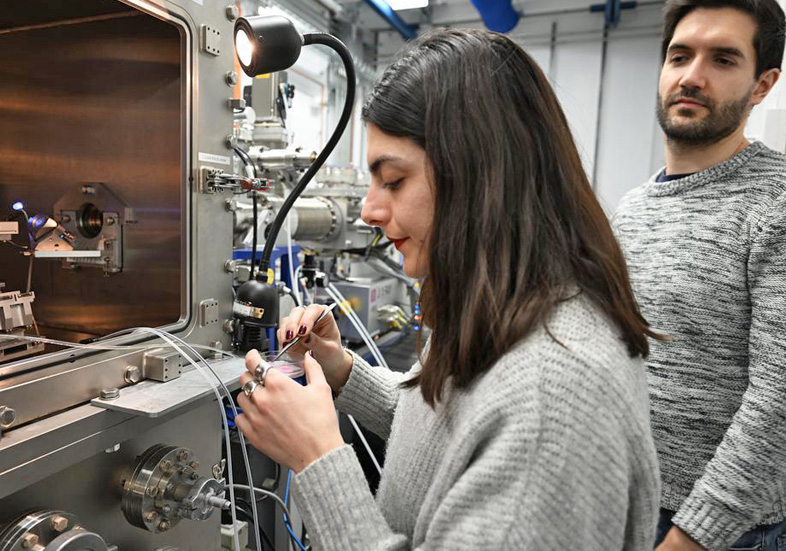
Uncovering and revealing the nano- to mesoscale structure and complex dynamics of heterogeneous systems under in situ conditions
The Complex Scattering Program at Brookhaven Lab's National Synchrotron Light Source II (NSLS-II) enables researchers to investigate the structure and dynamics of composite and complex materials. The program offers advanced x-ray scattering techniques under in situ conditions, taking full advantage of NSLS-II's ultrahigh brightness and coherence. The program's scientific focus is to study and optimize the relationship between function, structure, and dynamics in complex materials, including films and fibers.
Program Beamlines
Integrated In situ and Resonant Hard X-ray Studies
The ISR beamline offers dedicated x-ray diffraction and scattering tools for investigating the physics of novel materials. Its scientific scope covers three areas: novel ordering phenomena, atomic structure of functional surfaces and interfaces, and growth and materials processes. ISR provides a flexible range of sample environments and will soon provide full control of the photon beam polarization.
Inelastic X-ray Scattering
The IXS beamline is dedicated to studies on soft matter and biomolecular systems with mesoscopic complexity and inhomogeneity. IXS offers researchers ultrahigh resolution over an energy and momentum range that is ideally suited for investigating dynamic properties of materials, both of applied and fundamental interest, including single crystals, surfaces, thin films, confined liquids, and systems under extreme pressure and temperature.
Complex Materials Scattering
The CMS beamline facilitates rational design and discovery of new functional materials by unraveling the relations between constituents, processing, structure, and properties. CMS provides in situ and high-throughput x-ray scattering capabilities for nanoscale and mesoscale characterization of bulk and interfacial structures of complex, hierarchical materials, including nanomaterials, soft matter, and biomolecular materials.
Coherent Hard X-ray Scattering
The CHX beamline is dedicated to studies of nanoscale dynamics in materials using x-ray photon correlation spectroscopy (XPCS) with world-leading hard x-ray coherent flux and a state-of-the-art detection system for fast dynamics. CHX enables researchers to investigate nanoscale and mesoscale dynamics of complex materials on timescales ranging from below milliseconds to minutes or hours.
Soft Matter Interfaces
The SMI beamline enables the exploration of novel types of hierarchical ordering and heterogeneities in soft matter. SMI provides the rare range of tender to hard x-ray energies to study these materials at interfaces and in bulk using advanced small- and wide-angle x-ray scattering. The beamline's flexible focusing scheme can produce a micron-size or a low-divergence beam, offering world-class performance for the study of membranes, polymers, liquids, liquid crystals, and biomaterials.
Complex Scattering News
Our Partners

NSLS-II partners with the "Consortium for Real-Time Studies of Thin Film Growth and Surface Processing", co-led by the University of Vermont, Boston University, and Stony Brook University, to provide instrumentation, training, and user support for the ISR beamline.
The Center for Functional Nanomaterials (CFN) is a partner user on two x-ray scattering beamlines at NSLS-II, through which CFN will provide advanced structural probes, of molecular and nanoscale order, to the nanoscience user community. These beamlines provide complementary capabilities to explore complex parameter spaces (CMS beamline) and to perform frontier studies of nanomaterials (SMI beamline).












